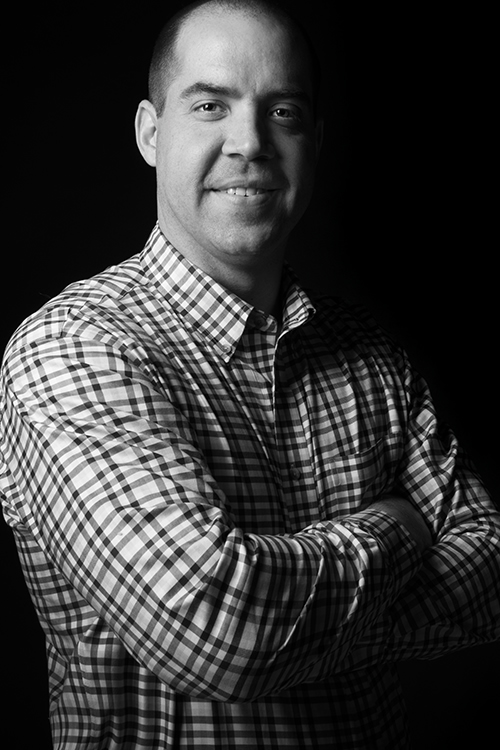Creating a Supportive Space
Clayton Sponhaltz ÔÇÖ08 learned firsthand that addiction can turn a life upside down. Now, heÔÇÖs helping students find their own road to recovery

By Michelle Mondo
The warning signs had been there but he didnÔÇÖt pay attention. Missing a class, then two, until he missed more than he attended. Then it all culminated when Clayton Sponhaltz woke up one early morning somewhere in Corpus Christi. Not only was he lost and unsure of where his car was, but he also had no idea what happened the night before.
ÔÇťI was out of my mind for about a week on drugs and alcohol. My parents intervened and took me to a hospital,ÔÇŁ Sponhaltz recalls about the course of events that changed his life when he was 20. He entered rehab, and that is where he truly understood the choices heÔÇÖd made. ÔÇťI realized that I didnÔÇÖt know how to live effectively without a substance in my body,ÔÇŁ he says. ÔÇťI knew that life had to look better than what I was doing.ÔÇŁ
Now sober for more than 12 years, Sponhaltz is bringing his life lessons to his alma mater, not only as a licensed chemical dependency counselor but also as assistant director of UTSAÔÇÖs Center for Collegiate Recovery. The center offers a place for students who are in recovery, looking for support, or just want the college experience minus the drugs or alcohol.
Because a support network is often key to success for anyone embracing sobriety, starting with the fall 2016 semester, UTSAÔÇÖs Alvarez Hall will have up to 30 beds dedicated to students in recovery or wanting to pursue a sober lifestyle. ÔÇťItÔÇÖs been said that college campuses are abstinence-hostile environments, where sobriety is not necessarily embraced at all,ÔÇŁ Sponhaltz says. ÔÇťItÔÇÖs not seen as even a possibility.ÔÇŁ About four out of five college students drink alcohol, and half of the students who drink do so through binge drinking, according to the National Institute on Alcohol Abuse and Alcoholism.
Launched in 2014, the Center for Collegiate Recovery was born out of a University of Texas System initiative. Regents authorized $2.4 million to fund or expand alcohol prevention, education, and recovery programs at all UT academic campuses. In addition to the seed funding it received, the center also got a financial boost from the La Hacienda Treatment Center, which committed $25,000. Sponhaltz is working to secure sustaining funding and donations for the centerÔÇÖs ongoing efforts. [Interested in being a supporter? There are multiple ways.
He converted a conference room at the Recreation Wellness Center on Main Campus so that it was conducive for individual and group counseling or just hanging out. There is also dedicated space in the Buena Vista Building at the Downtown Campus.
As for the program, Sponhaltz says itÔÇÖs starting with a grassroots focus, not committing to any particular philosophy for recovery. ÔÇťIt was really important that we didnÔÇÖt take off just doing what we thought students would like,ÔÇŁ he explains. ÔÇťWe wanted to hear from them and asked, ÔÇśWhat do you want to do?ÔÇÖÔÇŁ
ÔÇťThe students want what any other college student wants: a community,ÔÇŁ he says. They want to hang out with like-minded people and without the stress of worrying about what temptation might crop up. The most popular event so far has been the sober spring break retreat, which will now be annual, and plans are being made for this semester as well. Tailgating at home football games is also a hit.
The centerÔÇÖs staff also wants to increase the conversations on campus about alcohol and substance abuse and to include educational experiences for the community. They held their first educational class already, focusing on the myths and facts surrounding marijuana use.
Inclusion of anyone seeking an alternative, Sponhaltz says, is of the utmost importance. The open Alcoholics Anonymous meetings hosted at the center are an example of just that. Initiated by a current student who got sober through the center, the meetings are available to anyone who may be seeking help, whether from alcohol, drugs, or even eating disorders. The center includes support for students across a spectrum, Sponhaltz adds.
Given his history, Sponhaltz understands how hard it can be for students who want to connect and have fun at college but donÔÇÖt want to drink or do drugs. He experienced it himself before leaving college the first time at 19 when he attended Texas Tech University. When he decided to get back to his education, he opted for UTSA. But finding his place was not easy, and he spent most of his time off campus. ÔÇťI tried to connect with other college students and stay sober,ÔÇŁ he says, ÔÇťbut it was hard.ÔÇŁ
After earning his degree in psychology, he took a job as a counselor at the same center in the Hill Country where he found treatment. When Sponhaltz saw that UTSA was hiring for someone to get the center up and running, he knew it would be a perfect fit. ÔÇťItÔÇÖs really freaking hard to stay sober, in general, and then to be in college too? As an alum, I felt that UTSA has to have that support available. Because of my history, I can really understand their story.ÔÇŁ
